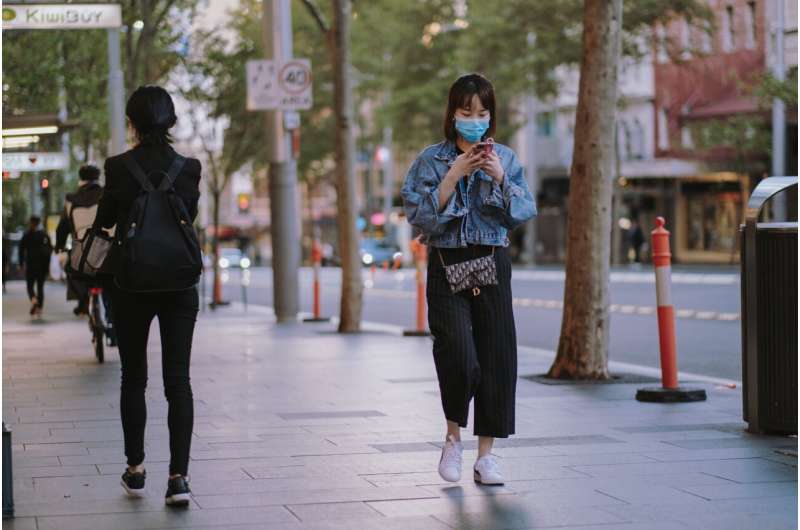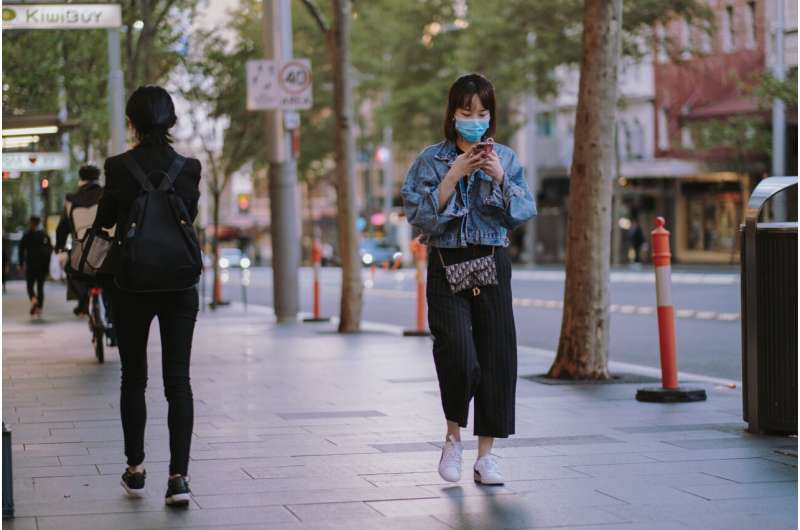Coronavirus: Urban parks can be a lifeline—if we respect lockdown rules

Recent statements from the UK government have made it clear that everyone, not just the elderly or those with pre-existing medical conditions, needs to play a part in controlling the spread of the novel coronavirus.
Self-isolation
and
The UK government's new "lockdown" measures, announced on March 23, allow people to leave their homes to exercise. For this reason, parks are remaining open, as long as we observe the protocols of not being groups larger than two (apart from households) and keeping a safe distance of two meters between each other.
Safe use
In cities and other urban areas, many people do not have the luxury of outside space. Parks, gardens and other local green spaces are vital to our everyday health.
Unfortunately over the last few days in the UK a lack of adherence to the two meter social distancing and grouping advice has led to park closures in London. Criticism of people treating the situation as a bank holiday in Matlock Bath and Skegness led to the very real prospect of the only places people have to exercise being closed. Local government, park managers and organizations like the National Trust are making the difficult decision to close parks for the good of society.
Although parks can be places of quiet solitude, they are also places where people congregate. We need to be thoughtful about spending time outdoors whilst adhering to the NHS and Public Health England advice.
If we want to keep using parks we must do so safely and with consideration of others. Otherwise, we may all end up isolated indoors, which would be far worse. Cities such as Paris have already closed their parks.
Parks, in many places, are big. They can accommodate lots of people, doing different things, at the same time. Large city parks can provide locations where lots of people can walk, run, cycle or play without being within two meters of others. Hyde Park in London, Sefton and Stanley Parks in Liverpool, and Leazes Park in Newcastle are all examples of green spaces with room for lots of simultaneous activities to take place. Whilst play areas and outdoor gyms are off limits, grass or woodlands might be a new natural playground for children or those young at heart.

Health benefits
Visiting and using parks can provide us with significant health benefits. Spending time in parks and green space has been shown to reduce stress and support mental health. Sunshine provides Vitamin D and helps to keep our joints and bones healthy.
Protecting mental health is very important in periods of stress. People who have existing anxiety or depression could become increasingly isolated due to UK government guidance on self-isolation. Parks offer locations that can help to moderate some of these more extreme impacts by allowing people to de-stress through engagement with nature, by getting away from the house and the 24-hour news cycle, and by slowing people down.
Parks allow us to engage with attention restoration theories by helping to relieve the fatigue we feel from the daily grind. The Japanese have Shinrin-Yoku or forest bathing; maybe Covid-19 will give the UK time to promote park-bathing to relieve stress.
The Forestry Commission and other reports have promoted the view that parks foster a sense of community and inclusion. Furthermore, spending time in nature may increase creativity and generosity.
We should see "outside" as a place that supports us all through self-isolation and social distancing. We should all think carefully about the short and long-term impacts of moving to an indoor lifestyle. We also need to understand that the valuable time we can spend in parks is a recognition by government, and by the public, that they are fundamental to our quality of life.
We, as a society, need to ensure that even if it is only to clear our heads for ten minutes from the stresses of isolation, that we maintain our relationship with nature. For those people not used to spending time in parks maybe now is a good time to start—as long as we keep two meters apart. Closing parks is a tragedy for all and one that we need to minimize to ensure everyone has a place they can exercise, find quiet and stay healthy over the coming weeks.
This article is republished from The Conversation under a Creative Commons license. Read the original article.![]()



















